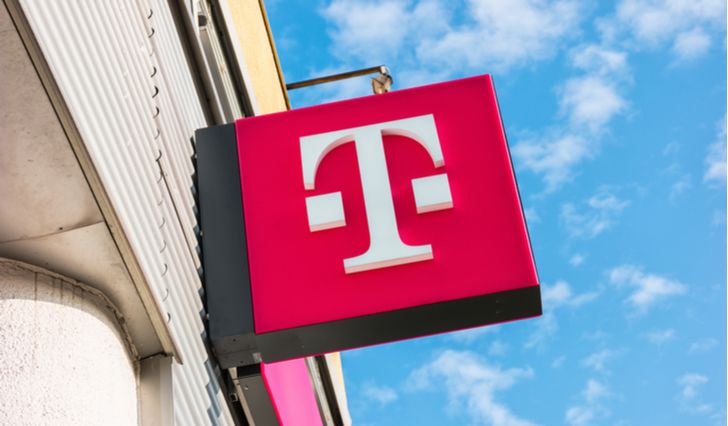T-Mobile (NASDAQ:TMUS) has stalled out over the past 14 months. A huge bull run in TMUS stock that lasted through last summer has officially ended, and I’m not terribly surprised.
That’s not a knock on T-Mobile. The company’s performance continues to be solid, and it has been the best name in the wireless space. But that’s not the issue. As I wrote last year, T-Mobile’s problem is that it’s the best stock in an unattractive industry. Competition for U.S. wireless customers remains intense, and wireless companies’ lack of pricing power hurts their margins.
The result is what I’ve called in the past a “circular firing squad,” and the pressure on the industry is reflected in the sector’s stocks. TMUS stock is up only several percentage points over the past year, and that’s with a 7.7% gain on Monday. Verizon Communications (NYSE:VZ) has gained less than 10% over the last twelve months, while both AT&T (NYSE:T) and Sprint (NYSE:S) have fallen over the past year.
This is still not a particularly attractive industry. And that’s why T-Mobile needs the Sprint merger to happen, and it explains why TMUS stock rose so sharply on Monday.
TMUS Stock Is Still the Best-in-Breed
TMUS stock has absolutely dominated its peers over pretty much every time period. Over the past five years, TMUS has risen about 175%; the other three stocks combined have declined, excluding their dividends.
And it’s not hard to see why. T-Mobile simply continues to peel subscribers away from its rivals — a trend that is continuing, as shown by the company’s record second quarter earnings. In Q2, T-Mobile added a net total of 686,000 postpaid subscribers. According to the company’s press release, Q2 was the 18th straight quarter in which T-Mobile’s net subscriber gain led the industry. Sprint added a net total of 87,000 subscribers last quarter. while AT&T picked up 46,000, and Verizon gained a solid 398,000.
In other words, T-Mobile added more subscribers than its three rivals combined. And, again, this isn’t a new trend, or a one-off event driven by weak comparisons. On the subscriber front, T-Mobile simply has been winning for several years now. And those wins are reflected in TMUS stock.
But the Industry Is Very Competitive
But the relative weakness of the industry is also reflected in the stock. TMUS did challenge a 52-week high on Monday before falling just short and pulling back in early trading Tuesday. But its earnings — and recent news — reflect the continued competitive pressure in the U.S. wireless industry.
For instance, as well as T-Mobile is performing on the top line, its EBITDA margins barely moved in Q2. Given the huge fixed costs of running a wireless business, the company’s margins should steadily expand as its sales grow. T-Mobile, however, has to give back some of that operating leverage through generous pricing. The company’s peers reported similar results, despite what was overall a reasonably strong quarter for the industry in terms of subscribers and revenue.
Meanwhile, on Monday morning T-Mobile announced a $30 per line unlimited plan, as the industry’s pricing continues to be pressured. Admittedly, the offer is basically the existing plan without free service from Netflix (NASDAQ:NFLX). But eighteen months after Verizon reversed its opposition to all unlimited plans , the state of pricing in the market seems reasonably clear: Consumers expect unlimited phone and data service at low prices, and they will switch carriers to get it.
TMUS Stock Needs the Merger
And that’s why the Sprint-T-Mobile merger is so important for TMUS stock. The transaction would bolster the bull case in a few ways. Adding Sprint would dramatically expand T-Mobile’s customer base, lead to substantial cost savings, and give T-Mobile a bigger edge in trying to take subscribers from AT&T and Verizon. Investors already have seen what CEO John Legere did with what was an underdog not that long ago. What might he do with a giant?
But the merger also, most likely, would alleviate at least some of the pricing pressure in the space. Three competitors are probably better than four (though economists and investors can debate whether that’s true, and an antitrust judge will probably have to decide the issue). That’s particularly true if, after the Time Warner (NYSE:TWX) deal, AT&T focuses more on maximizing its existing subscribers than acquiring wireless subscribers at any cost.
The market certainly seems to believe that the merger will help TMUS, as Monday’s 7%+ gain in TMUS stock came on the heels of speculation that the company’s new $30 per line deal could help convince regulators to allow the transaction.
TMUS stock is now in an interesting position. If the merger goes through, TMUS will probably rise. If the deal doesn’t close, the “good house in a bad neighborhood” problem will continue, and TMUS stock could be dead money or worse. Investors should place their bets accordingly.
As of this writing, Vince Martin has no positions in any securities mentioned.

